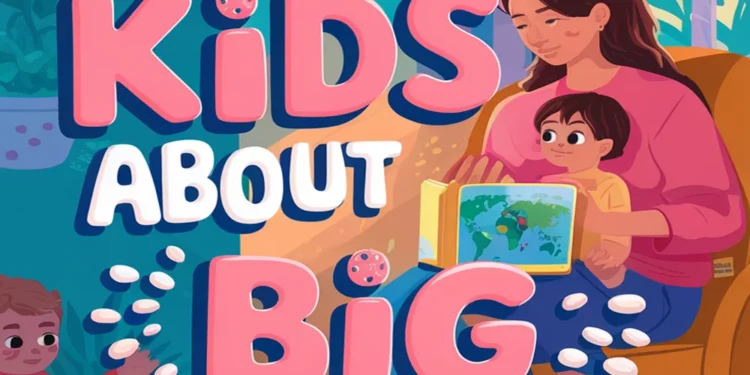Talking to kids about big world events can be sensitive, but it’s important to approach it with care. Start by understanding their feelings and creating a quiet space for discussion. Tailor your information based on their age, keeping it simple yet reassuring. Encourage open dialogue and listen actively to their thoughts. Acknowledge their fears and highlight positive actions taken to address the issues. By doing this, you’ll foster trust and confidence, and there’s more to explore on this topic.
Understanding Your Child’s Perspective
Understanding your child’s perspective is essential when discussing world events. They might feel confused or frightened by the news they hear. It’s natural for kids to interpret information differently based on their age, experiences, or emotions. When you approach these conversations, take a moment to listen. Ask them what they know or feel about a certain topic. Encourage open dialogue, making sure they know it’s okay to express their worries or questions. Providing a safe space for them to share their thoughts can help you gauge their understanding. By acknowledging their feelings, you’ll build trust and make it easier to address their concerns. Ultimately, staying empathetic will help them process the complexities of the world around them.
Choosing the Right Time and Place
Finding the right time and place to talk about world events can greatly impact how your child processes the information. Choose a comfortable, quiet setting free from distractions, like the living room or during a calm walk. This helps create a safe space for open dialogue. Also, consider your child’s mood and energy levels; it’s best not to initiate these discussions when they’re tired or upset. Look for natural opportunities, like when they ask questions or during related news events. Being mindful of these factors can enhance understanding and encourage your child to share their feelings. Remember, your presence and patience show them that it’s okay to discuss difficult topics whenever they’re ready.
Recommended Items
Explore our curated selection of products and tools to support your family discussions on important world events!
Products
Tailoring the Information to Their Age
As you consider how to discuss world events with your child, it is crucial to tailor the information to their age and developmental stage. Younger children might only need simple explanations, focusing on feelings rather than facts. They may process emotions better than complex details, so emphasize safety and reassurance.
For older kids, you can offer more context and depth. Discuss the broader implications and encourage them to ask questions. Be mindful of their emotional responses; they might feel overwhelmed or confused. The key is to keep the conversation age-appropriate, allowing your child to engage without feeling frightened. By doing this, you’re helping them understand the world while also ensuring they feel secure and supported.
Step-by-Step Guide to Discussing World Events
Encouraging Open Dialogue
Creating a space for open dialogue encourages your child to share their thoughts and feelings about world events. To foster this environment, ask open-ended questions and listen actively. This not only shows you care but also lets them know it’s okay to express themselves.
| Questions to Ask | Purpose |
|---|---|
| What do you think about this? | To gauge their feelings |
| How does that make you feel? | To encourage emotional sharing |
| What questions do you have? | To invite curiosity |
Providing Reassurance and Support
While it’s natural for kids to feel anxious or confused about world events, providing reassurance and support is essential to help them navigate these emotions. Acknowledge their feelings; let them know it’s okay to feel scared or uncertain. Use simple language to explain what’s happening, ensuring they understand without overwhelming them with details. Reassure them by pointing out the positive actions people are taking to address issues and keep everyone safe. Encourage them to ask questions, and respond honestly to build trust. Help them feel empowered by discussing ways they can contribute positively, whether through acts of kindness or learning. Your support can foster resilience and a healthy perspective, guiding them toward understanding and coping with difficult situations.













